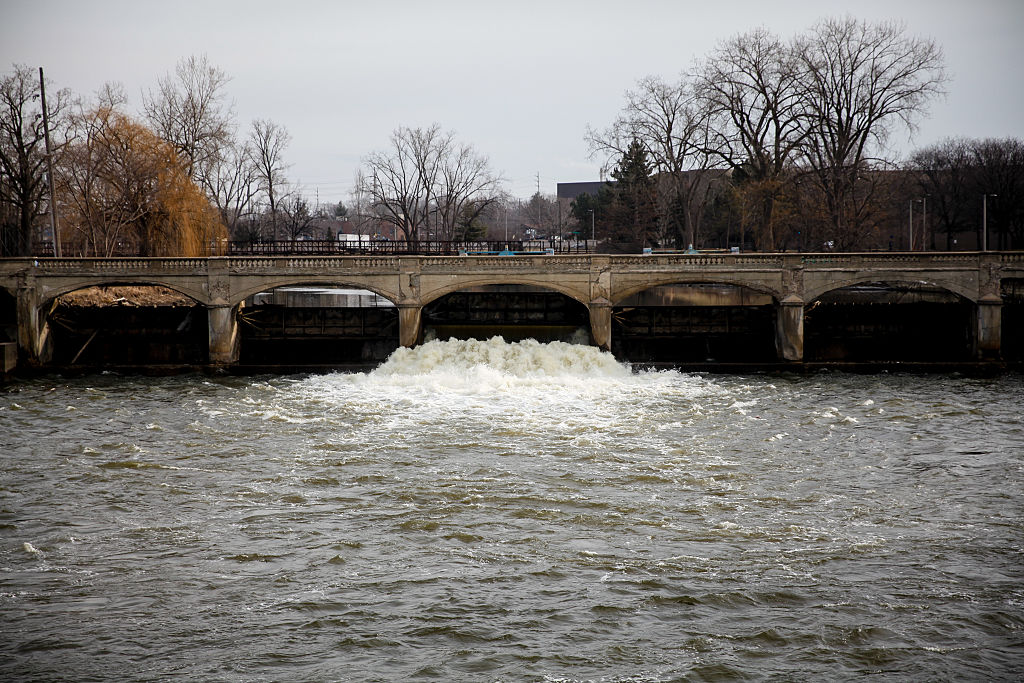Flint's water crisis caused an outbreak of Legionnaires' disease

A free daily email with the biggest news stories of the day – and the best features from TheWeek.com
You are now subscribed
Your newsletter sign-up was successful
The city of Flint, Michigan, is still dealing with the fallout of its contaminated water crisis. In 2014, the city switched its water source from Lake Huron to the Flint River — and in addition to the resulting dangerously high levels of lead in the water, two studies published Monday revealed that the change in water supply also caused a massive outbreak of Legionnaires' disease in the city between 2014 and 2015.
The outbreak killed 12 people and affected at least 87, NPR reported. Eighty percent of those cases are thought to have been caused by the water change, revealed one study, published in the Proceedings of the National Academy of Sciences. Scientists theorize the bacteria that causes Legionnaire's thrived in the water from the Flint River water because that supply had lower levels of chlorine than the water from Lake Huron. Chlorine is one of the important killers of waterborne bacteria.
Chlorine is also known to interact differently with various metals, which means that the high lead levels in Flint's water might explain why the chlorine presence was so low — and why the Legionnaires' outbreak ended so quickly after Flint's water source switched away from the Flint River. Still, there are complications that may prevent the true impact of the Legionnaires' outbreak from ever being known, The Detroit News explained, including that some cases of Legionnaire's may have been misdiagnosed as pneumonia.
The Week
Escape your echo chamber. Get the facts behind the news, plus analysis from multiple perspectives.

Sign up for The Week's Free Newsletters
From our morning news briefing to a weekly Good News Newsletter, get the best of The Week delivered directly to your inbox.
From our morning news briefing to a weekly Good News Newsletter, get the best of The Week delivered directly to your inbox.
The study findings may have dire consequences for six local officials facing charges of involuntary manslaughter related to Legionnaires' disease, a legal analyst told The Detroit News. Read more about the studies here.
A free daily email with the biggest news stories of the day – and the best features from TheWeek.com
Shivani is the editorial assistant at TheWeek.com and has previously written for StreetEasy and Mic.com. A graduate of the physics and journalism departments at NYU, Shivani currently lives in Brooklyn and spends free time cooking, watching TV, and taking too many selfies.
-
 How the FCC’s ‘equal time’ rule works
How the FCC’s ‘equal time’ rule worksIn the Spotlight The law is at the heart of the Colbert-CBS conflict
-
 What is the endgame in the DHS shutdown?
What is the endgame in the DHS shutdown?Today’s Big Question Democrats want to rein in ICE’s immigration crackdown
-
 ‘Poor time management isn’t just an inconvenience’
‘Poor time management isn’t just an inconvenience’Instant Opinion Opinion, comment and editorials of the day
-
 British warship repels 'largest Houthi attack to date' in the Red Sea
British warship repels 'largest Houthi attack to date' in the Red SeaSpeed read Western allies warn of military response to Iranian-backed Yemeni rebels if attacks on ships continue
-
 Houthi rebels claim Red Sea ship attacks
Houthi rebels claim Red Sea ship attacksspeed read Iran-backed Yemeni group vows to escalate aggression towards Israel-linked vessels in revenge for Gaza war
-
 Israel plans next phase of Gaza war as first hostages released
Israel plans next phase of Gaza war as first hostages releasedSpeed read After four-day ceasefire 'we will not stop' until destruction of Hamas, says Israel
-
 Mob storms Russian airport 'looking for Jews'
Mob storms Russian airport 'looking for Jews'Speed Read Plane from Israel surrounded by rioters chanting antisemitic slogans after landing in Russia's Dagestan region
-
 Tuberville's military promotions block is upending lives, combat readiness, 3 military branch chiefs say
Tuberville's military promotions block is upending lives, combat readiness, 3 military branch chiefs saySpeed Read
-
 Ukraine's counteroffensive is making incremental gains. Does it matter in the broader war?
Ukraine's counteroffensive is making incremental gains. Does it matter in the broader war?Speed Read
-
 US commissions first-ever Navy ship in a foreign port
US commissions first-ever Navy ship in a foreign portSpeed Read
-
 British spy chief, Wagner video suggest Prigozhin is alive and freely 'floating around'
British spy chief, Wagner video suggest Prigozhin is alive and freely 'floating around'Speed Read